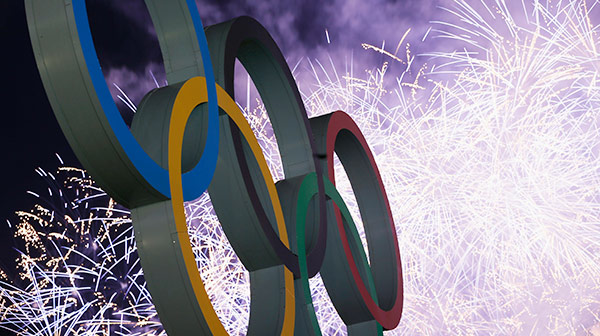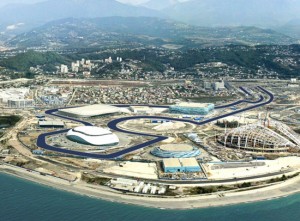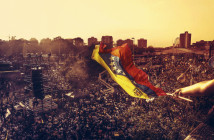Although the 2014 Sochi Winter Olympics were successful for outstanding sporting moments and record viewing numbers, they also became renowned as the most expensive Winter Olympics ever. At a price of over US$50 billion much emphasis has been placed on the indulgence of the Russian government and its cohorts to host the Olympics, with many sceptics critical of the city’s ability to retain a sporting-city status. One year on we take a look.
Although much criticised by many as an indulgent, and wasteful use of resources the Sochi Olympics transformed an ageing, and unknown, resort in a modern sport hub, now ranked in the top 10 globally. The airport, first started in 1989 was finally completed for the Olympics. A new (and expensive) train line now operates daily between the beach and mountain resorts on the coastal town while Russian mobile operators, MegaFon and Rostelecom, installed 3G networks across the area.
The sprawling resort, host to several stadiums and event centres so far appears to have been utilised more than many of its Olympic predecessors. The Laura Ski Complex is home to Nordic ski teams. The Fisht stadium, used for the Opening and Closing ceremonies, shall be used for the 2018 FIFA World Cup, the ski village of Rosa Khutor is earmarked as an international ski destination, and the Bolshoi ice dome has become the home ground for local ice hockey team HK Sochi, allegedly attracting up to 10,000 fans each game.
To date Sochi has been successful in making itself an epicentre for sport.
The resort is already host to ice hockey’s international Channel One Cup each December. Through the winter 2015 season the venue has already accommodated several winter sport world cups including skeleton, luge, curling and figure skating and has already secured for 2016 Alpine World Junior Skiing Championships and in 2017 the Bob and Skeleton World Championships.
Aiming to cater for all seasons, Sochi hosted a Formula 1 Grand Prix in October and will continue to do so for the foreseeable future. This summer the resort will also host an ITU triathlon world cup and the Women’s Chess Championships. With the football world Cup set to take place in 2018 sporting in Sochi looks to stay put.
The town, home to just 300,000 residents, shall inevitably feel ghost like now, with many residents reporting half-finished construction, but tourism is apparently on the increase. According to Olympic.org tourism in Sochi increased 28% year-on-year in 2015, with avid skiers and fans alike flocking to the resorts to ski on the same slopes as their idols.
Despite the enormous cost of the Olympics, Sochi is now well placed on the tourist map, providing Russia with an opportunity to expand its lagging holiday industry. What’s key now is that Russia ensures Sochi remains host to many winter sporting events for years to come, if not it will always be remembered as the most expensive Winter Olympics to date.
If you like this article you may be interested in “Russians seek Luxury Cars before Christmas”:






